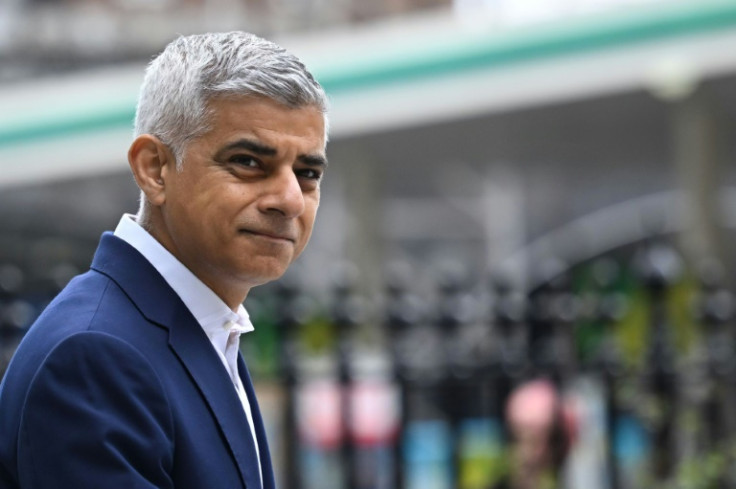Sadiq Khan Pledges To Keep London's Homeless From Life Threatening Winter Weather
The Mayor of London has implemented SWEP, which sets out to get homeless persons off of the streets, as he calls the current UK weather conditions "freezing".

For the first time this year, the Mayor of London, Sadiq Khan, has implemented a new strategy that will protect homeless people from the harsh and cold climate this winter.
The pan-London Severe Weather Emergency Protocol (SWEP) was activated by the London Mayor today and will see emergency accommodation opened by councils across the England capital and homelessness charities.
With temperatures forecasted to fall below zero degrees this week, the freezing weather conditions pose a threat to the lives of those sleeping rough.
"As winter approaches, Londoners once again stand ready to help the most vulnerable in our society," the Mayor of London promised.
Khan announced the SWEP launch saying: "With temperatures dropping below zero across the capital I've activated my Severe Weather Emergency Protocol to make sure anyone seen sleeping rough in these freezing conditions is offered a place in emergency accommodation and the support to move on to the safe, secure accommodation they need."
Earlier this year, official Government figures confirmed that the number of homeless persons in every region of England had increased every year.
Recognising how the current cost-of-living crisis has only fuelled homelessness across the UK, Khan added: "For many Londoners struggling to pay soaring rents and a cost-of-living-crisis, this winter will feel longer and colder than ever."
"We know that these factors are forcing more people onto the streets, it is imperative that ministers stop turning a blind eye to this crisis and start taking action to ensure people can afford to stay in their homes," he added.
London-only Combined Homelessness and Information Network (Chain) figures estimate that there were more than 10,000 people regularly sleeping on the streets of London in the 11 months leading up to March 2023.
Outreach teams counted more than 4,000 people sleeping on London's streets between July and September this year, marking a 12 per cent increase of the total figure recorded during the same period in 2022.
This week, the Department for Levelling Up, Housing and Communities (DLUHC) announced that it has allocated more than £50 million to assist with the fight against homelessness in Central London and as part of the SWEP initiative.
Since being re-elected as the Mayor of London in 2021, Khan has committed to his 'In for Good' policy.
The accommodation facilities will be open to rough sleepers regardless of temperatures increasing and until a further support plan is put in place to end their homelessness for good.
Since 2016, the London Mayor's rough sleeping policies brought more than a staggering 16,000 people off London's streets and into permanent housing accommodation.
Last year, SWEP helped more than 1,300 (1,350) people out of the cold and into hospitable accommodation as it was implemented for 28 winter nights.
While recalling his past success, the Mayor of London declared: "Since 2016, we've quadrupled funding and support to tackle homelessness, helping over 16,000 rough sleepers off the streets, but there's much more to do."
"London's councils and charities will be working even harder this week to support some of the most vulnerable people in our city," Khan clarified.
The Conservative Government have been criticised for turning a blind eye to homelessness in England, with the public slamming MPs for prioritising asylum seeker accommodation.
Prime Minister Rishi Sunak has also been penalised for overwhelming councils which are already struggling to house families after he ordered thousands of refugees out of their Home Office accommodation.
"Demand for temporary accommodation is already at an all-time high, with councils struggling to source suitable accommodation and cater for current needs," noted Shaun Davies, the Chair of the Local Government Association.
Davies went on to say: "Pushing tens of thousands of refugees out of Home Office accommodation onto councils will overload the system and mean they simply cannot provide for these vulnerable people's needs."
© Copyright IBTimes 2025. All rights reserved.






















